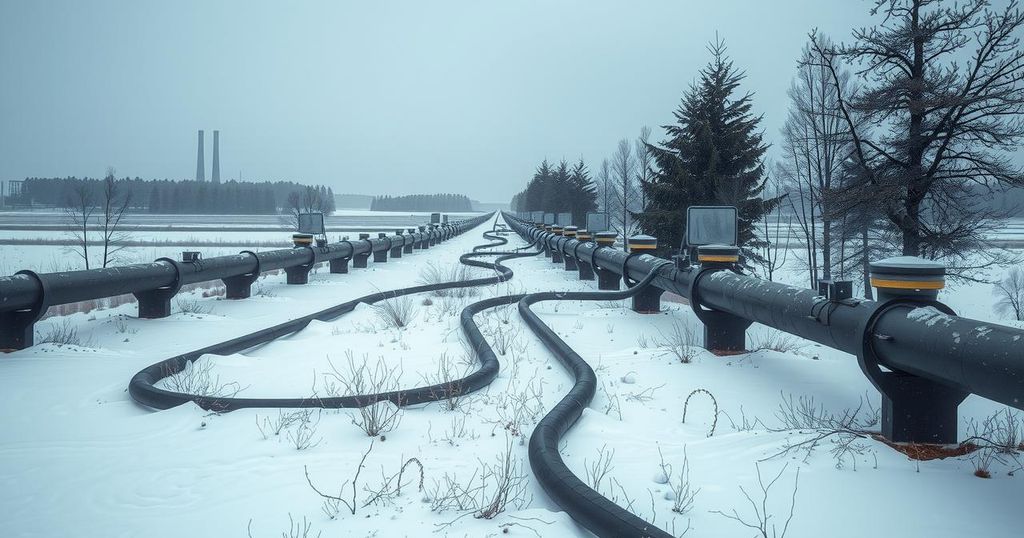Iran Maintains Gas Exports to Iraq Amid Domestic Energy Crisis

Iran continues to export gas to Iraq despite facing severe domestic shortages during a harsh winter. The Iranian regime claims that 72% of gas is consumed locally, yet many households face heating issues due to power outages. The continued energy agreements with Iraq and the presence of international sanctions exacerbate the situation, raising public frustration as the government appears to prioritize external contracts over its citizens’ needs.
As Iran grapples with severe domestic gas shortages during an exceptionally cold winter, authorities have confirmed the continuation of gas exports to Iraq. This decision remains in place despite U.S. sanctions and Iraq’s substantial debt of $11 billion for prior energy imports. Saeed Tavakoli, CEO of the National Iranian Gas Company, downplayed the ramifications of these sanctions and stated that Iran has extended a long-term gas export contract with Iraq.
While the Iranian government claims that 72% of gas production is allocated for local use, many Iranian households face relentless blackouts and heating shortages. Citizens have expressed skepticism towards government assurances, especially as power outages persist, making heating their homes increasingly difficult. The paradox remains stark: despite possessing vast natural gas reserves, Iran continues to import gas underlining its reliance on energy dealings with Iraq.
The ongoing energy challenges are exacerbated by Iran’s steadfast agreements with Iraq, despite the latter’s failure to settle its debts. Iraqi officials have reported blocked payments due to international sanctions, which further complicate the situation. Following U.S. President Donald Trump’s revocation of Iraq’s exemption from sanctions, Baghdad’s ability to lawfully import Iranian gas has been severely curtailed, heightening fears of an electricity crisis.
As the energy crisis worsens, government offices and schools in 28 provinces have closed, leaving many Iranian citizens struggling with cold conditions. Despite these pressing domestic issues, the Iranian government remains focused on exporting gas to Iraq. This situation has generated considerable public frustration, as citizens perceive their government prioritizing external gas agreements over the urgent needs of its populace.
The Iranian regime’s commitment to gas exports amid local shortages illustrates a troubling prioritization of regional influence over the welfare of its citizens. As reports of heating crises and energy rationing continue to surface, the energy policies seem increasingly untenable, leaving both Iranian households and Iraqi energy needs in jeopardy.
The article discusses the ongoing gas export situation from Iran to Iraq amid severe gas shortages within Iran itself. It highlights the challenges faced by Iranian citizens during harsh winter conditions while also addressing the background of international sanctions and economic debts that affect energy transactions between Iran and Iraq. The piece underscores the Iranian government’s choices in energy export policies and their implications for domestic welfare despite Iran’s vast gas reserves.
In conclusion, the Iranian regime’s decision to prioritize gas exports to Iraq, even amidst local shortages, reveals a stark divergence between its foreign policy objectives and domestic responsibilities. This situation has led to significant public dissatisfaction as many Iranians suffer from inadequate heating during winter months, all while authorities maintain that energy stability is being achieved. Ultimately, the persistence of this policy might spark further unrest among the population.
Original Source: www.ncr-iran.org





